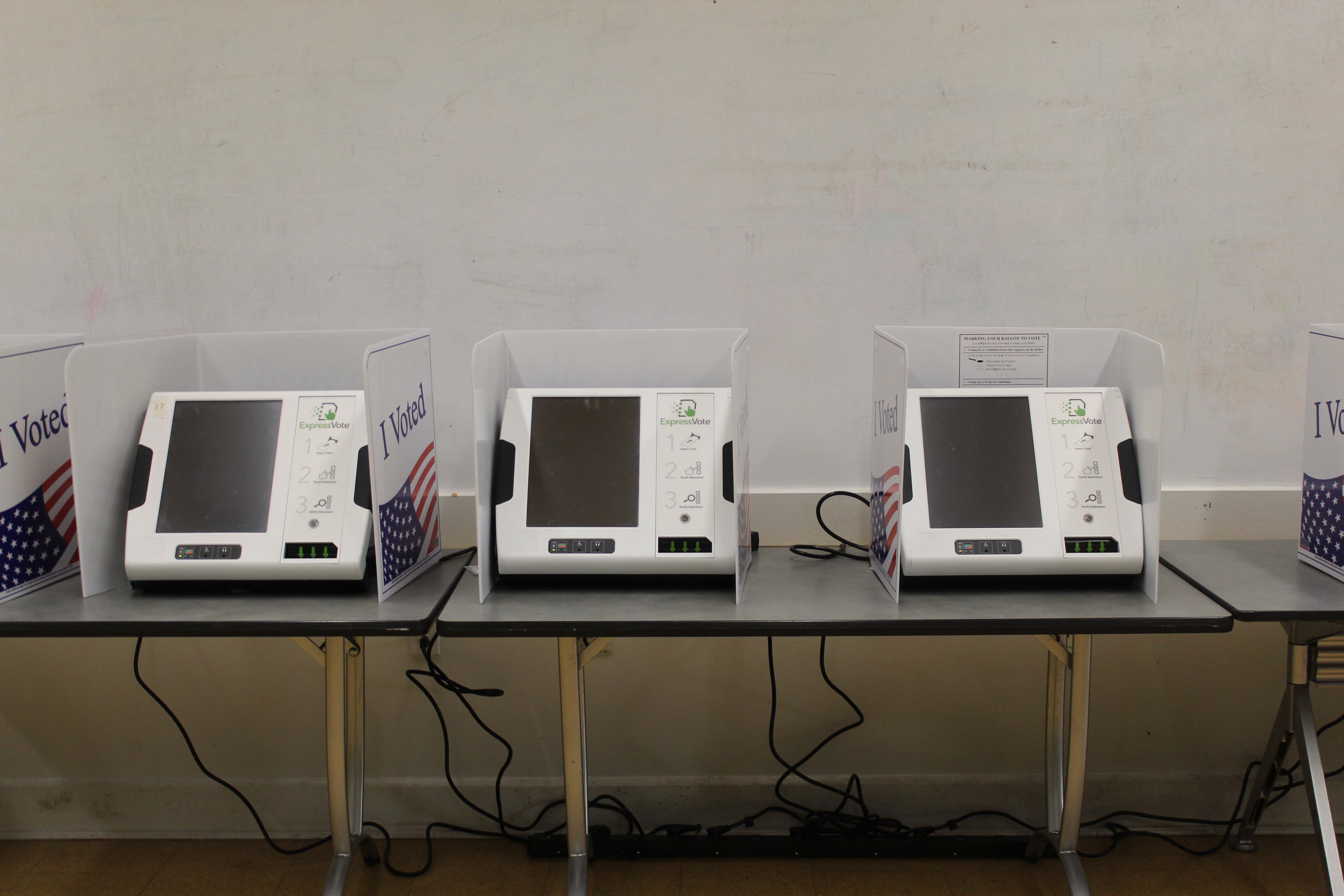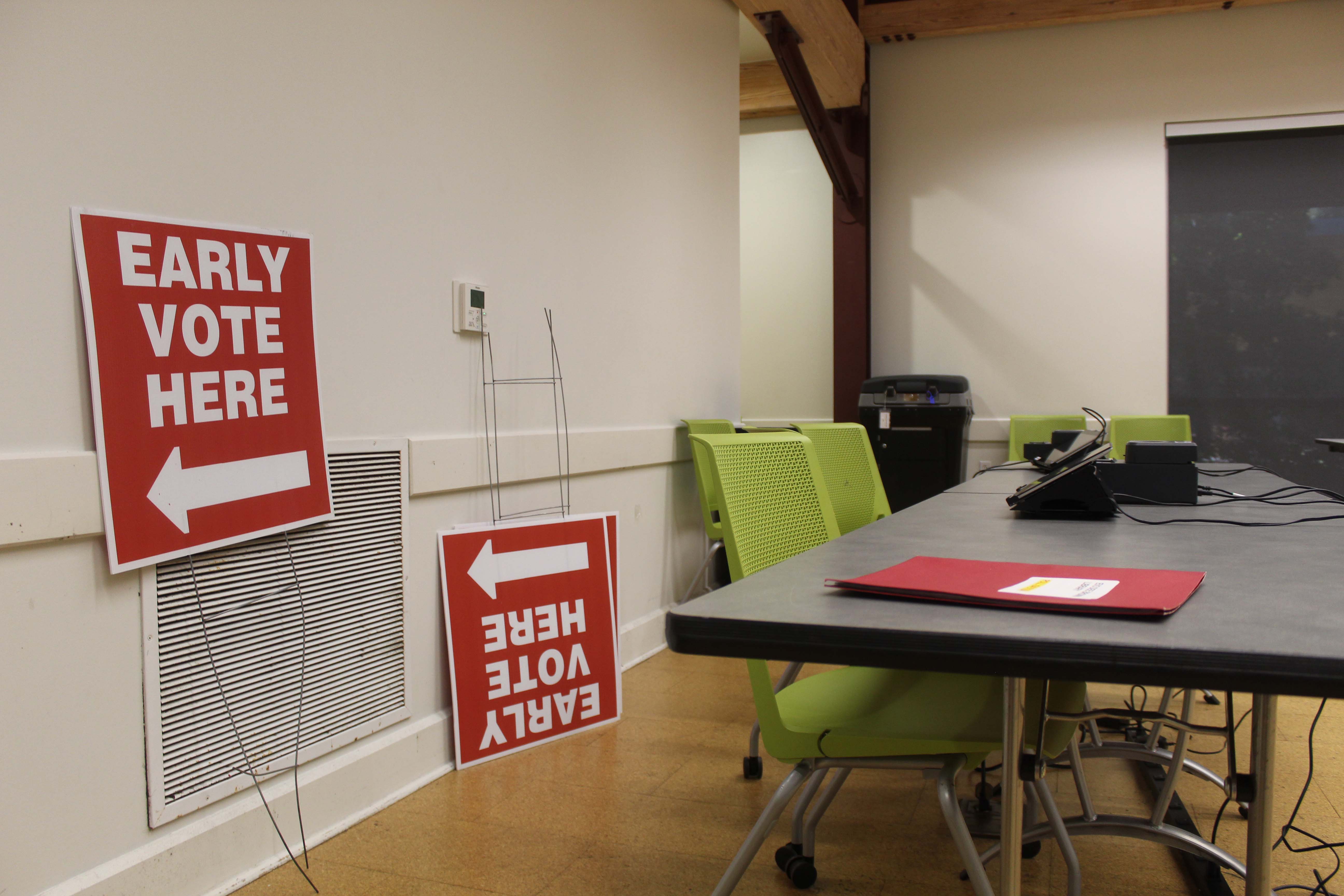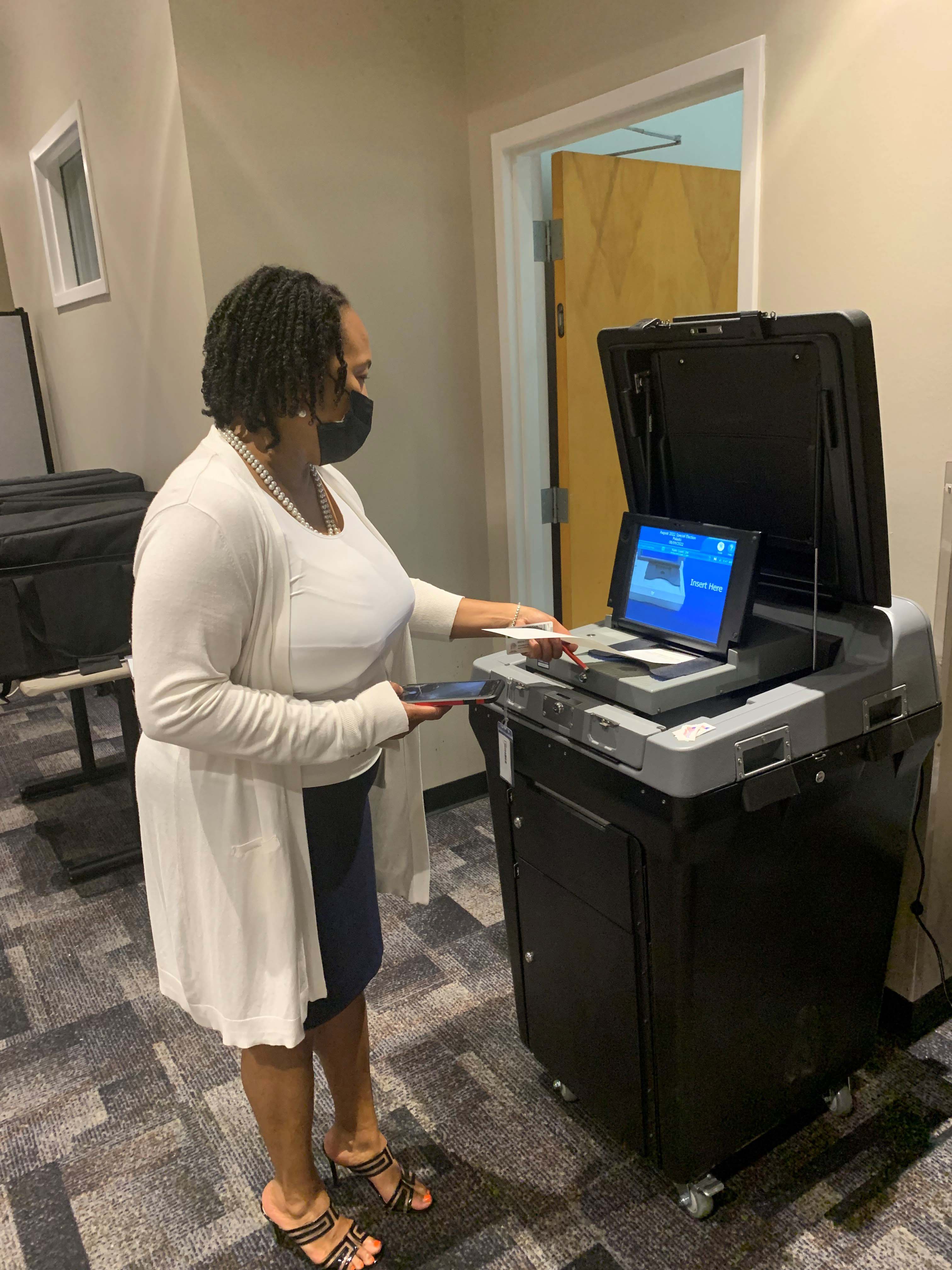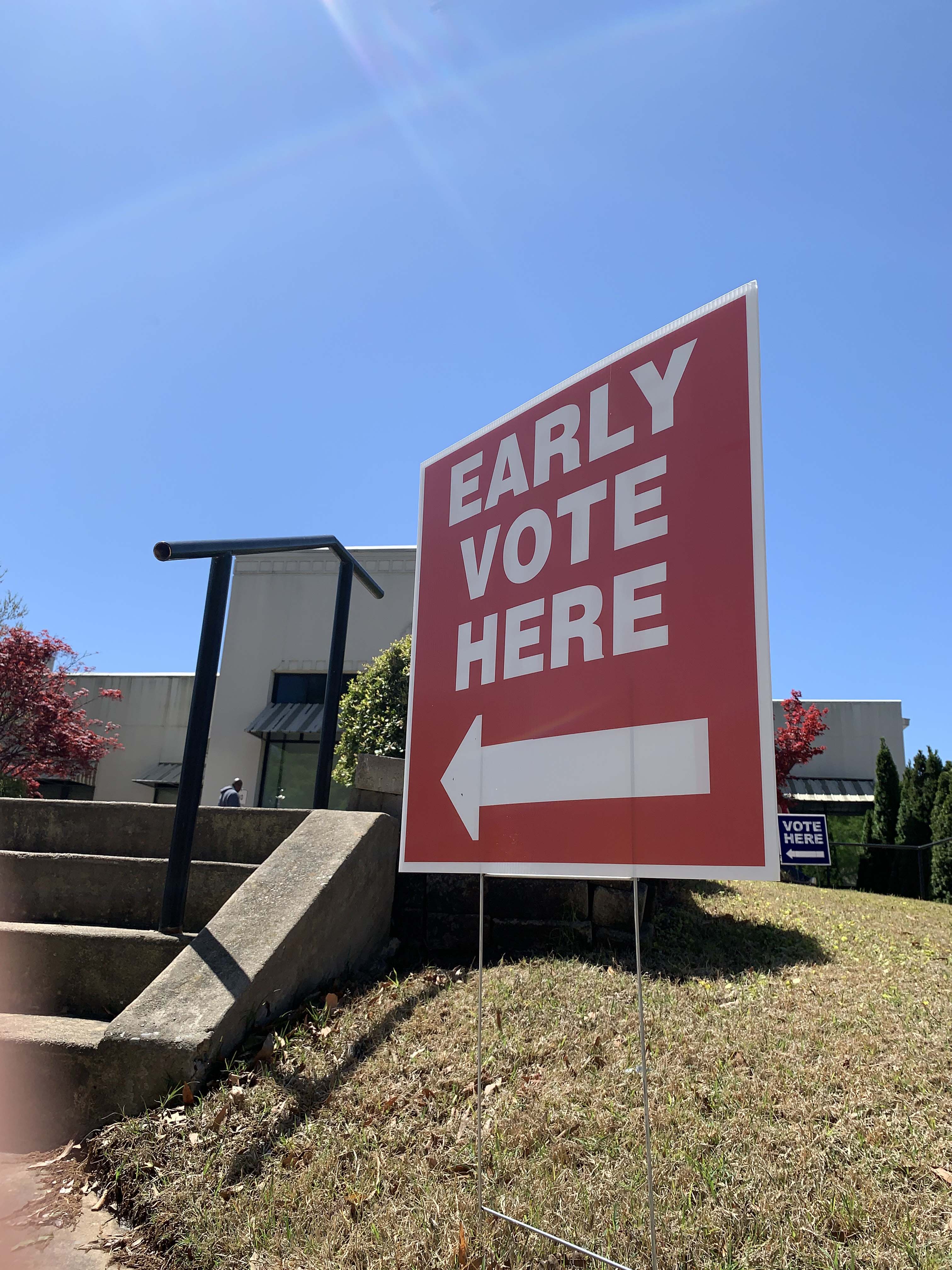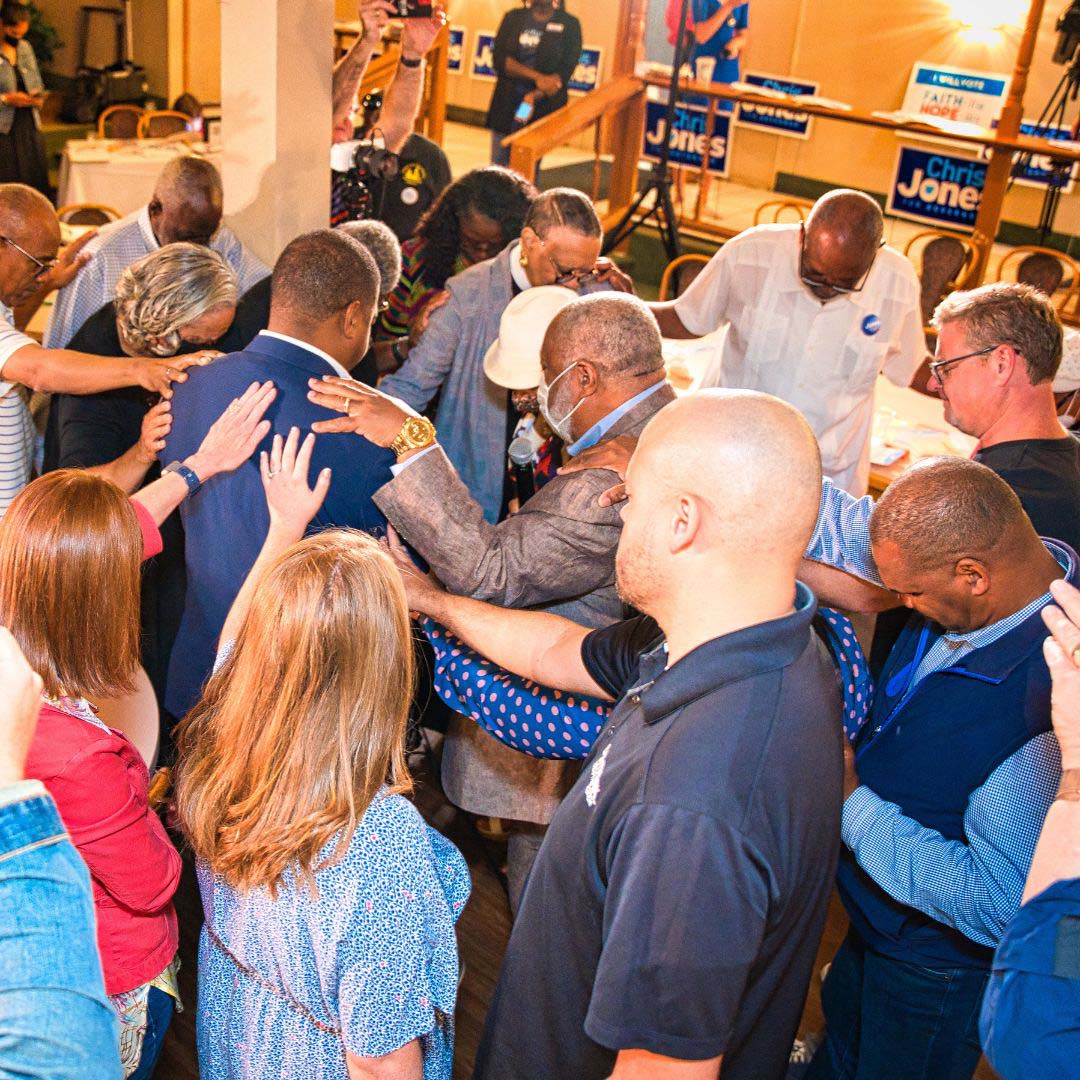Midterm Election 2022: DEMOCRATS SEEK TO BREAK GOP ONE-PARTY STRONGHOLD ON ARKANSAS POLITICAL LANDSCAPE
October 24-30, 2022
By Wesley Brown
As early voters go to the polls on Monday (Oct. 24), party leaders in Arkansas and across the U.S. are calling the upcoming Nov. 8, 2022, midterm election one of the most important political events in the nation’s history.
Pulaski County has approximately 240,800 eligible registered voters for this election. Pulaski County Circuit and County Clerk Terri Hollingsworth is encouraging local voters to develop a game plan for voting this year after legislators during the 2021 General Assembly approved more than 25 new election laws that are going into effect this cycle.
“(I) am asking residents to develop a plan now on how and when they will vote. There are three ways to vote – by absentee ballot, early vote and election day voting”, said Hollingsworth.” This upcoming election is extremely important because voters will be casting ballots for local, county, and statewide offices that really have the most impact on their daily lives.
“I strongly encourage all Pulaski County residents to participate in our democracy,” Hollingsworth continued. “In 2020, Arkansas was ranked last in voter turnout. Let’s help our state get off the bottom of that list by voting. It’s our civic duty.”
At the top of the ticket, Democrats are seeking to encroach on the Republican Party’s long-held dominance of the state legislature, all statewide public offices, and congressional seats. In Congress, Democrats are seeking to hold onto its razor-thin margin in the U.S. House of Representatives and a 50-50 split in the U.S. Senate, where Vice President Kamala Harris holds sway as the chamber’s tiebreaker.
In Arkansas, the party’s two central characters, GOP nominee Sarah Huckabee Sanders and Democratic Party candidate Chris Jones offer contrasting views on the future of the state’s political landscape. A third candidate, Ricky Dale Harrington Jr., of Pine Bluff, offers a third option through the state’s also-ran Libertarian Party.
Leading up to this week’s early voting, Jones and Sanders were both busy traveling and hosting party-friendly events across the state to replace Gov. Asa Hutchinson, the popular GOP governor who will be term-limited out of office at the end of 2022. One of the key planks of both campaigns is their ties to Christian voters.
Over the weekend, all three gubernatorial candidates participated in their lone debate hosted by Arkansas PBS.
ONWARD CHRISTIAN SOLDIERS
On Oct. 4, Jones’ campaign highlighted support from 27 faith leaders from across Arkansas that endorsed his candidacy for governor of Arkansas. Those endorsements came after Jones met with 35 faith leaders from across the state that are aligned with Vote Common Good, a national organization that says it “stands for the common good and … supports candidates who stand against Christian Nationalism.”
“Our campaign has traveled across the state and our message is resonating with people of all backgrounds — especially those who have been ignored and forgotten by their government for years,” said Jones. “As a minister and preacher’s kid, I am very proud to be supported by a community of faith leaders. My faith is important to me, and I am grateful for the support and prayers of other faith leaders uplifting our message of faith, hope and hard work for the people of Arkansas.”
In backing Jones, Vote Common Good styles itself as an alternative for Christian voters who have been taught that to be faithful, they must vote for Republican candidates regardless of the candidate’s character or policy positions. “This was highlighted by the treacherous insurrection and attack on Congress on January 6, 2021, and the continued spreading of the “big lie” about the 2020 Presidential election outcome,” said the progressive Christian group.
In a news release supporting Jones, Rev. Robb Ryerse, a Vote Common Good member in Springdale, said that the “Christian tradition is about the incarnation of grace and truth, mercy and justice, faith and works.”
“Chris Jones embodies this tradition of goodness and wisdom. I am confident that as governor, he will lead our state toward greater justice and generosity, for the good of all Arkansans,” said Ryerse.
Locally, Jones also had the support of Pastor Clegg of Second Baptist in Little Rock and Rev. Marion Humphrey Sr., the pastor of Allison Presbyterian Church in Little Rock and a retired circuit court judge for Pulaski and Perry counties.
“A few years ago, I made up my mind to show up wherever I saw integrity, honesty, love, goodwill, justice, and a concern for the common good. I decided to show up wherever I saw public servants who recognized the “servant” part of that phrase,” said Clegg. “I decided to show up to support candidates who called everyone to higher ground because it was right, not who mobilized the lowest ground, simply because it was expedient. This is why I’m here today in support of Chris Jones. I’m honored to call him a friend, and I see the best of virtues living in him.”
“I am supporting Chris Jones for governor because he is a remarkable man who cares about all people in this state. Chris cares about developing the potential of every person in Arkansas. He has that kind of heart and he possesses the intellect to get things done,” added Humphrey.
Sanders, who served as White House press secretary for former President Donald J. Trump Jr., also has leaned on her support from Christian evangelical voters that strongly back the Republican Party in Arkansas. Sanders is the daughter of former Arkansas Gov. Mike Huckabee, a Southern Baptist preacher who maintained his Christian posture during his tenure as the state’s chief executive. Sanders and her father are also both proud graduates of Ouachita Baptist College in Arkadelphia, the private college in South Arkansas that has a strong evangelical following.
In September, Sanders drew on the support of her Christian backers after she revealed that doctors had successfully removed her thyroid and lymph nodes during a bout with cancer.
“During a check-up earlier this month, my doctor ordered a biopsy on an area of concern in my neck and the test revealed that I had thyroid cancer. Today, I underwent a successful surgery to remove my thyroid and surrounding lymph nodes and by the grace of God I am now cancer-free,” Sanders said in a statement.
Besides their efforts to connect to Christian voters and other religious groups, Jones and Sanders have also trotted out key parts of their gubernatorial agenda. On Oct. 18, Sanders unveiled her “LEARNS” education plank, which she says prioritizes Literacy, Empowerment, Accountability, Readiness, Networking and School Safety.
In a statement to the Daily Record, Sanders offered her vision of leadership if she is elected by Arkansas voters on Nov. 8. The Republican candidate, who has held a 10-to-1 fundraising advantage over Jones since early 2021, added that she will lead a $3.5 million paid media campaign through Election Day.
“Arkansans want a fighter who will push back against the failed radical left policies coming from Washington, but also a leader who will defend our freedom and create opportunity for all Arkansans,” said Sanders. “As governor, I will lower taxes, foster an environment for Arkansas’ businesses to grow, champion good schools while empowering parents, and support law enforcement. Together, we are going to take Arkansas to the top and make this state one of the best places to live, work and raise a family.”
For his part, Jones is spending the week ahead of early voting traveling across the state to meet with key constituent groups. On Wednesday, Oct. 19, Jones hosted the “Black Women for Chris” community town hall meeting in Pine Bluff. Following that afternoon meeting, Jones traveled to Little Rock to host the “Conversations with Chris: Issues Affecting Black Men” community roundtable.
According to campaign officials, Jones has traveled the entire state to meet with and hear from diverse groups of individuals “that sew the fabric of Arkansas.” Not only has Jones shared his vision to give everyone a seat at the table, officials said, but he has also listened and learned from attendees.
Jones first made history in the May 23 preferential primary as the first African American selected by voters as a candidate for governor for a major party. According to the Arkansas Secretary of State’s Office, Jones won 70.4% of the votes in the Democratic primary, winning 66,540 out of the 94,472 votes cast. "Right now, Arkansas needs a compassionate and empathetic leader with the humility to understand that this moment is bigger than any one of us, the grace to bring a broad range of people together to address complex challenges, and the real-life experience to manage a massive organization," said Jones. "My background in science/STEM, innovation, entrepreneurship, education and service – coupled with my wife’s service in the military and healthcare – give me the skills, networks and aptitude to serve as governor. My faith, hope and hard work give me the heart to govern for all Arkansans and restore civility to our politics."
In the Republican primary, where 347,887 votes were cast, Sanders won 83.16% or 289,249 of the ballots for an easy victory over former conservative radio host Doc Washburn.
STATEWIDE OFFICES, CONGRESSIONAL RACES
In other key statewide races, Lt. Gov. Tim Griffin ran away with the GOP race for attorney general with over 85% of the vote against Pine Bluff native Leon Jones Jr., brother of the Democratic Party’s choice for governor. He is running against Democratic Party’s nominee Jesse Gibson of Little Rock and write-in candidate Gerhard Langguth.
Current Attorney General Leslie Rutledge ran away with the six-person GOP primary race for lieutenant governor with 54% of the ballots cast in other statewide down-ballot constitutional races. Rutledge, who earlier said that the part-time lieutenant governor’s position was not her cup of tea, will face off against the Democratic Party nominee candidate Kelly Krout of Lowell and Libertarian candidate Frank Gilbert of Little Rock in the fall.
Incumbent Secretary of State John Thurston, who oversees Arkansas elections, is running against Democrat Anna Beth Gorman in the Nov. 8 general election after she beat Joshua Price with nearly 59% of the votes.
Republican Mark Lowery, a state representative from Maumelle, easily won the GOP primary for State Treasurer as the state’s chief fiscal officer (CFO). In the Democratic primary, Pam Whitaker was the lone Democrat candidate on the ticket to be the state’s new CFO. Lowery, also sponsor of the several new Voter ID laws now on the books, will be on the November ticket as the state’s CFO even though he has a shoddy history of taking care of his personal finances, such as failure to pay back taxes, facing garnishments and liens from credit card companies and debt collectors, and filing late or incorrect campaign finance reports.
All the Republican incumbent lawmakers in Arkansas that serve in the U.S. House and Senate won the primary contests for their congressional seats in the congressional races. Sen. John Boozman of Rogers will face Democratic candidate Natalie James of Little Rock, who also made history as the Black female candidate for U.S. Senate in Arkansas with 58% of the votes.
In races for the U.S. House, incumbent Reps. French Hill of Little Rock of the 2nd Congressional District, Rick Crawford of Jonesboro (1st District) and Steve Womack of Rogers (3rd District) beat back their primary challengers with 58.5%, 74.6% and 78.8%, respectively, of the votes counted.
On the November ballot, Hill will face Democrat Quintessa Hathaway of Sherwood. She is also looking to make history as the first Black woman to represent Arkansas in the U.S. House. She and Hill will be on the ballot with Libertarian Michael White of Little Rock.
BALLOT ISSUES
The Arkansas State Legislature also referred three constitutional amendments to the 2022 ballot. A marijuana legalization initiative sponsored by Responsible Growth Arkansas was certified for the ballot by the Arkansas Supreme Court last month. Here’s a synopsis of the ballot issues:
• Issue 1 allows the state legislature to call itself into extraordinary sessions upon a joint proclamation from the Speaker of the House and Senate President or by a proclamation signed by two-thirds of the members in each chamber.
• Issue 2 requires a 60% supermajority vote of approval for initiated constitutional amendments and initiated state statutes to be adopted.
• Issue 3 amends the state constitution to provide that “government shall not burden a person’s freedom of religion even if the burden results from a rule of general applicability.”
• Issue 4 legalizes marijuana use for residents 21 years of age and older and authorizes the commercial sale of marijuana.
Photo Captions:
Top left photo (1) - Pulaski County Circuit and County Terri Hollingsworth prepares for upcoming Nov. 8 election. (2) Pulaski County workers put out early voting signs over the weekend at the downtown Little Rock voting site at 501 W. Markham St. (3) GOP gubernatorial nominee Sarah Huckabee Sanders (left) speaks to members of the Grant County Republican Party. (4) Supporters of Chris Jones (center) encircle and pray for the Democratic Party's candidate for governor on the campaign trail.
Crawford will also face another Black candidate as state Democrat Rep. Monte Hodges of Blytheville won the Democratic primary. Roger Daugherty, an independent, is also on the ballot. After beating back challenger Neil Kumar in the GOP primary, Womack has two challengers in November against the lone Democrat Party candidate, Lauren Mallett-Hays of Farmington, and Libertarian Michael J. Kalagias of Rogers.
U.S. Rep. Bruce Westerman of Arkadelphia did not get any primary challengers in the sprawling 4th District. He faces Democrat John White of Stephens and Libertarian Gregory Maxwell of Dover on the Nov. 8 ballot.




